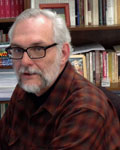2013
Timothy H. Silver
- Professor
- Appalachian State University

Abstract
Environmental history—the study of past interaction between people and nature—provides a lens through which scholars can view familiar events in new and challenging ways. Timothy Silver, an environmental historian, and Judkin Browning, a military and social historian, turn that lens on the most studied episode in American history: the Civil War. Both soldiers and civilians struggled against weather, disease, and food shortages. The vagaries of geography and terrain frequently helped determine the outcome of major campaigns. Horses, cattle, and hogs accompanied the troops and, like people, faced new threats from disease and malnutrition. In the American South, foraging armies, larger than all but a few southern cities, left human and animal waste that polluted water supplies and spread dysentery and typhoid. Thousands of human and animal corpses littered abandoned battlefields, further escalating the risk of disease and posing serious health hazards for those who lived nearby. By investigating such non-traditional topics, Silver and Browning show how the war altered basic relationships between people and nature and, in turn, how nature shaped the course and outcome of the war. The Civil War also left an important environmental legacy. The first national parks celebrated unspoiled western landscapes as a cultural antidote for eastern fields and forests ravaged by warfare. Today, at Manassas, Antietam, and Gettysburg, human endeavors comingle with nature’s agency in areas managed, in large part, by the same institution that oversees the national parks. The project brings together Silver’s previous research in American and southern environmental history with Browning’s work in Civil War military history. Their collaboration will result in a co-authored book, The Civil War: An Environmental History, that combines research and methodology from their respective sub disciplines, and is designed for both scholars and general readers. Award period: August 15, 2014 - May 15, 2015

